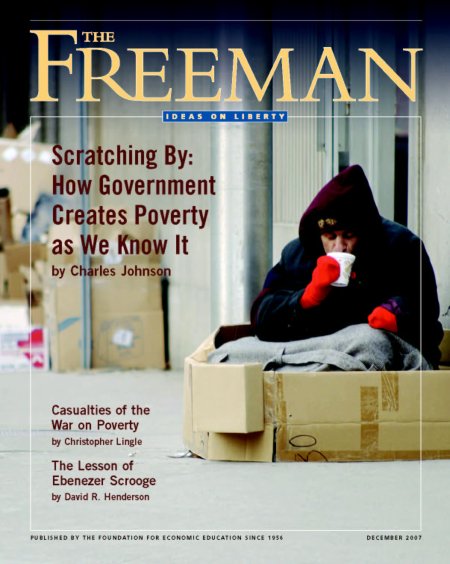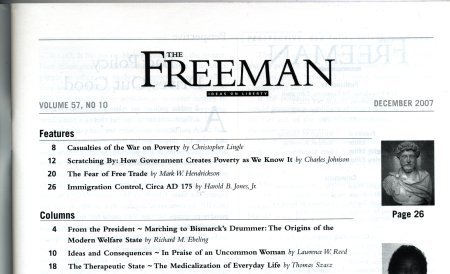Scratching By: How Government Creates Poverty as We Know It
Here’s something I found in the mail yesterday:
Scratching By: How Government Creates Poverty as We Know It
Governments—local, state, and federal—spend a lot of time wringing their hands about the plight of the urban poor. Look around any government agency and you'll never fail to find some know-it-all with a suit and a nameplate on his desk who has just the right government program to eliminate or ameliorate, or at least contain, the worst aspects of grinding poverty in American cities—especially as experienced by black people, immigrants, people with disabilities, and everyone else marked for the special observation and solicitude of the state bureaucracy. Depending on the bureaucrat's frame of mind, his pet programs might focus on doling out conditional charity to
deservingpoor people, or putting moreat-riskpoor people under the surveillance of social workers and medical experts, or beating up recalcitrant poor people and locking them in cages for several years.But the one thing that the government and its managerial aid workers will never do is just get out of the way and let poor people do the things that poor people naturally do, and always have done, to scratch by.
Government anti-poverty programs are a classic case of the therapeutic state setting out to treat disorders created by the state itself. Urban poverty as we know it is, in fact, exclusively a creature of state intervention in consensual economic dealings. This claim may seem bold, even to most libertarians. But a lot turns on the phrase "as we know it." Even if absolute laissez faire reigned beginning tomorrow, there would still be people in big cities who are living paycheck to paycheck, heavily in debt, homeless, jobless, or otherwise at the bottom rungs of the socioeconomic ladder. These conditions may be persistent social problems, and it may be that free people in a free society will still have to come up with voluntary institutions and practices for addressing them. But in the state-regimented market that dominates today, the material predicament that poor people find themselves in—and the arrangements they must make within that predicament—are battered into their familiar shape, as if by an invisible fist, through the diffuse effects of pervasive, interlocking interventions ….
— Scratching By: How Government Creates Poverty as We Know It,
In The Freeman (December 2007), 12–17.
You can read the whole thing at The Freeman‘s website. Enjoy! FEE’s website doesn’t (yet) support online comments, but I’d be glad to hear what you think in the comments section over here.
While I’m on the subject, I’d like especially to thank Sheldon Richman for his encouragement and his help, and my companion L. for her patient reading and helpful comments. The article would have been much the poorer, or more likely nonexistent, without their aid.

